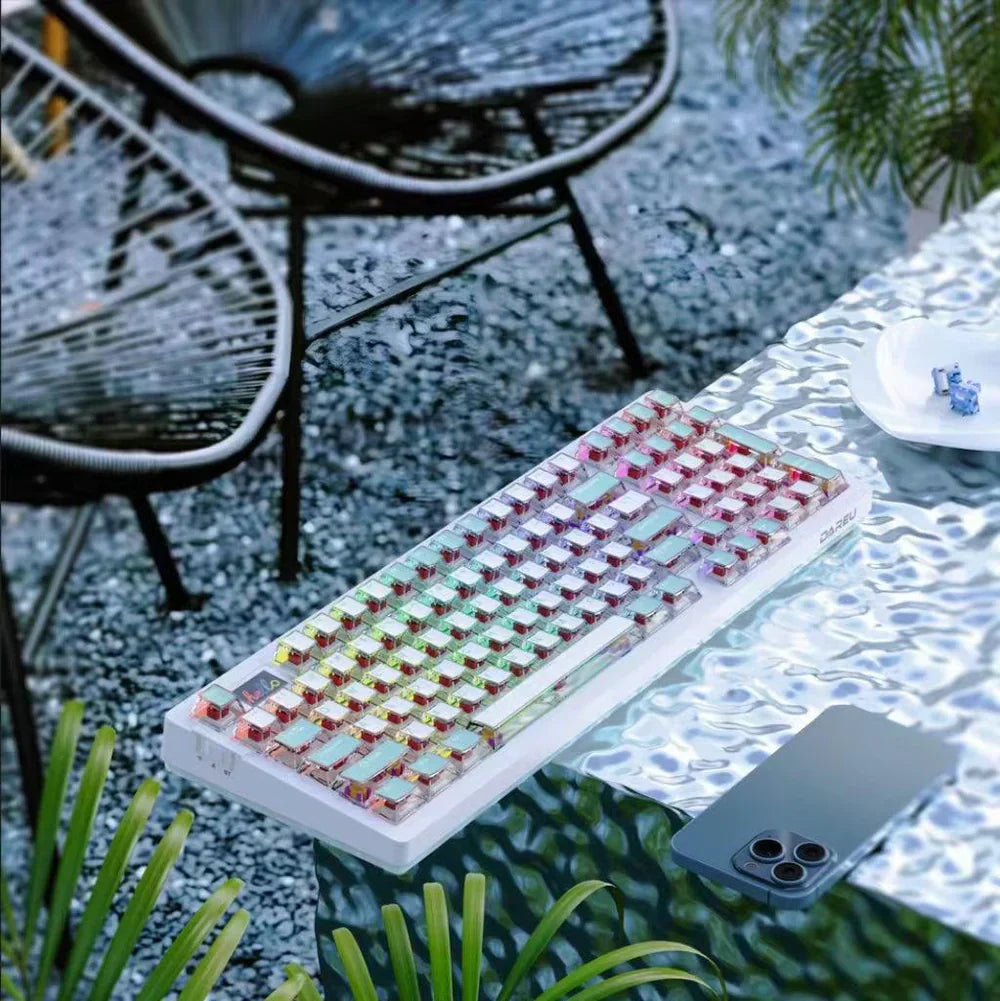
RGB lighting on a keyboard is more than just an aesthetic touch—it’s a functional feature that enhances visibility, mood, and the overall experience. Whether you're gaming in a dark room or working into the night, having strong, vibrant backlighting makes a big difference.
But what if your RGB lighting feels too dim or uneven? Can you fix it without buying a new keyboard? The answer is yes—if you know what to adjust.
In this guide, you’ll learn how to increase RGB light power on your keyboard—not just by turning up brightness, but by improving lighting design, using smarter technology, and applying customization features that make a noticeable difference.
It’s tempting to think that turning the brightness all the way up is the best way to enhance your keyboard’s lighting. But brightness alone isn’t everything.
Studies show that uneven, harsh, or overly concentrated lighting can lead to discomfort and glare, especially during extended use. In contrast, well-balanced and evenly distributed lighting leads to better visibility and less eye strain, particularly in dark or changing environments (Komninos et al., 2022).
The key takeaway: don’t just aim for maximum brightness—optimize how that brightness is delivered.
A highly effective way to boost the perceived brightness of your keyboard is to use a light guide plate (LGP). This internal component helps spread LED light evenly beneath the keycaps.
LGPs eliminate “hotspots” and shadows, which means each key is illuminated consistently. This creates a much cleaner and more polished look, making the keyboard feel more premium.
Another lighting enhancement that often goes unnoticed is the use of reflective layers within the keyboard. These layers redirect otherwise wasted light back through the keycaps, improving brightness without requiring more power.
Reflective designs also make lighting more efficient, maximizing the output of each LED while preserving battery life in wireless keyboards.
What works well in daylight might be too intense at night. That’s why smart lighting control is so useful. Keyboards with ambient light sensors can adjust RGB brightness automatically based on the surrounding light.
The DAREU A98 Wireless Gaming Keyboard features dynamic RGB lighting, allowing you to create the perfect gaming ambiance with fully customizable backlighting that looks great in any lighting condition.
RGB lighting is personal. That’s why customization matters. The best keyboards allow users to control:
These features help users fine-tune their experience, whether they want minimal lighting during work or full RGB animation during a gaming session. The DAREU EK75-RT exemplifies this with its customizable RGB lighting options designed to suit your gaming setup and enhance the aesthetic of your play area.
Lighting has a direct impact on usability. Evenly lit keycaps help reduce typing errors, particularly in low-light settings. This is especially helpful for users who aren’t touch-typists or who switch between layouts.
For gamers, visual feedback improves reaction time and confidence during fast-paced sessions (Komninos et al., 2022).
If you're using a wireless keyboard, it’s natural to worry that brighter lighting might drain the battery faster.
Fortunately, many modern keyboards use adaptive brightness, LED dimming during inactivity, and energy-efficient circuits to balance brightness and battery performance (Isuwa et al., 2023). So you can have powerful lighting—without constantly reaching for the charger.
The DAREU A98 Pro II goes with a built-in LED indicator that displays real-time power consumption, making it easy to monitor battery levels and avoid unexpected shutdowns during critical moments.
High brightness and cool color tones can cause discomfort during extended use, especially in dark rooms. That’s why many users benefit from night mode settings, which shift the color temperature toward warmer tones after sunset.
Smooth lighting transitions and lower evening brightness help prevent fatigue and support healthier screen habits (Khanh et al., 2018).
Vibrant, high-quality RGB lighting is often seen as a sign of a premium product. Users are more likely to associate rich lighting features with better design, craftsmanship, and value.
Even non-gamers tend to favor keyboards with brighter, customizable lighting when given the option (Yumura & Nakamura, 2019).
Great lighting doesn’t just improve daily use—it also makes keyboards more memorable. A keyboard that looks great and performs reliably earns more positive feedback and repeat usage.
Research shows that products with high user satisfaction in lighting design tend to generate more brand loyalty and stronger recommendations to others (Fu, 2025).
If your goal is to increase RGB light power on your keyboard, don’t stop at brightness. Think about how lighting is distributed, how it adapts to your environment, and how much control you have over it. The best lighting setup is one that feels comfortable, looks great, and works for you anytime, anywhere.
References:
Your cart is empty